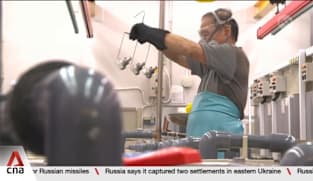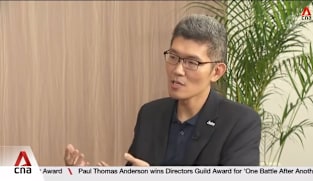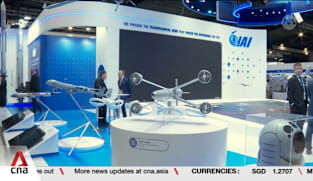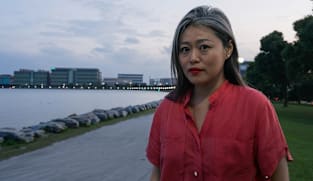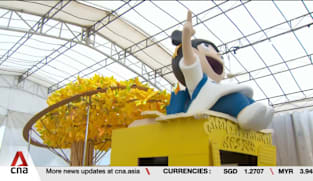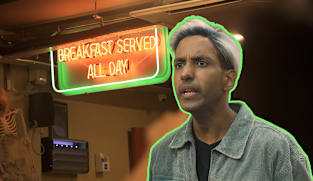Chee Hong Tat on Goods and Services Tax (Amendment) Bill
The Government will centrally prescribe a list of its non-taxable fees to provide greater clarity and certainty to everyone. Fees in the non-taxable list would include those for applications to approve a regulated activity. For example, applications for professional licences and their licence renewal fees will be non-taxable, and would include the 18 regulatory fees that the Government is refunding. All other fees that are not part of this list will be subject to the Goods and Services Tax (GST). As part of this change in legislative approach, the Ministry of Finance (MOF) and Inland Revenue Authority of Singapore will work closely with agencies to assess their fees instead of allowing self-assessment by agencies. MOF had reviewed all the regulatory and ancillary fees that currently charged GST and announced in February the refund of GST on 18 fees where GST was wrongly charged. It is now working with agencies on the remaining regulatory and ancillary fees which do not charge GST. There are more than 1,700 such Government fees which MOF is reviewing. If Parliament approves the Bill, the initial list of non-taxable fees will be published in the Gazette in end-April, when the Bill comes into force. MOF will continue to work with agencies to progressively prescribe their regulatory fees in the non-taxable list and aims to complete this by September this year. All fees that are not prescribed in the non-taxable list will be subject to GST. Second Minister for Finance Chee Hong Tat announced this in Parliament on Tuesday (Apr 2). He pointed out that there are three categories of such fees. The first category, which involves the vast majority of fees, relates to services provided by the Government which are clearly and already charged with GST today. The second category comprises fees that are charged with GST today, but where there has been inconsistency in the interpretation of the law by agencies. For example, agencies may charge fees for examinations that an individual must undertake prior to being licensed as a practising professional in a regulated industry. Such examination fees should attract GST. For agencies that have been charging GST on such fees, the Government will validate these past GST collections. The third category is fees that are not charged GST but should be charged with GST. These include more than a hundred examination and inspection-related fees. Mr Chee said the Government will help to minimise the impact on the public by absorbing the GST in the first instance and imposing a freeze on these fees until end-2025. Hence, all affected fees will not increase immediately. Mr Chee said MOF will work closely with the agencies to review whether the fees can be reduced or even removed. If there are unavoidable cost increases, then the agencies would have to raise their fees. But they will do so only after end-2025 and will ensure that any increases are phased in gradually, taking into consideration the impact on affected stakeholders. Mr Chee told the House that the Government is proposing a clearer and more robust approach - one that ensures the correct GST treatment on Government fees by centralising the assessment and making clear the list of non-taxable fees via legislation.
The Government will centrally prescribe a list of its non-taxable fees to provide greater clarity and certainty to everyone. Fees in the non-taxable list would include those for applications to approve a regulated activity. For example, applications for professional licences and their licence renewal fees will be non-taxable, and would include the 18 regulatory fees that the Government is refunding. All other fees that are not part of this list will be subject to the Goods and Services Tax (GST). As part of this change in legislative approach, the Ministry of Finance (MOF) and Inland Revenue Authority of Singapore will work closely with agencies to assess their fees instead of allowing self-assessment by agencies. MOF had reviewed all the regulatory and ancillary fees that currently charged GST and announced in February the refund of GST on 18 fees where GST was wrongly charged. It is now working with agencies on the remaining regulatory and ancillary fees which do not charge GST. There are more than 1,700 such Government fees which MOF is reviewing. If Parliament approves the Bill, the initial list of non-taxable fees will be published in the Gazette in end-April, when the Bill comes into force. MOF will continue to work with agencies to progressively prescribe their regulatory fees in the non-taxable list and aims to complete this by September this year. All fees that are not prescribed in the non-taxable list will be subject to GST. Second Minister for Finance Chee Hong Tat announced this in Parliament on Tuesday (Apr 2). He pointed out that there are three categories of such fees. The first category, which involves the vast majority of fees, relates to services provided by the Government which are clearly and already charged with GST today. The second category comprises fees that are charged with GST today, but where there has been inconsistency in the interpretation of the law by agencies. For example, agencies may charge fees for examinations that an individual must undertake prior to being licensed as a practising professional in a regulated industry. Such examination fees should attract GST. For agencies that have been charging GST on such fees, the Government will validate these past GST collections. The third category is fees that are not charged GST but should be charged with GST. These include more than a hundred examination and inspection-related fees. Mr Chee said the Government will help to minimise the impact on the public by absorbing the GST in the first instance and imposing a freeze on these fees until end-2025. Hence, all affected fees will not increase immediately. Mr Chee said MOF will work closely with the agencies to review whether the fees can be reduced or even removed. If there are unavoidable cost increases, then the agencies would have to raise their fees. But they will do so only after end-2025 and will ensure that any increases are phased in gradually, taking into consideration the impact on affected stakeholders. Mr Chee told the House that the Government is proposing a clearer and more robust approach - one that ensures the correct GST treatment on Government fees by centralising the assessment and making clear the list of non-taxable fees via legislation.









